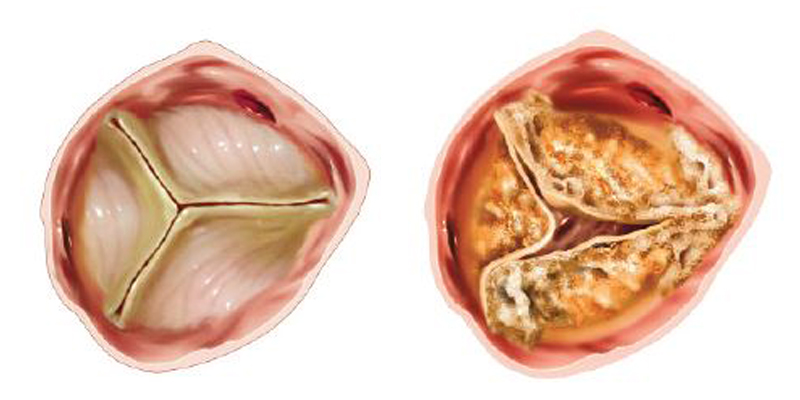Aortic stenosis is a narrowing of the aortic valve. The aortic valve is one of four heart valves that control the flow of blood out of the heart. When aortic stenosis occurs, the flaps of the valve thicken, stiffen, or fuse together, so the valve cannot open properly, this is called a stenotic valve. The heart has to work harder and the blood flow is reduced, so there is less oxygen in the body.
Aortic stenosis may make you feel breathless and faint, with heart palpitations and chest pain.

Click on the 'Information' tab for more details about how to improve your health if you have this condition.
Improving your health
There are some things you can do to help improve your health before you have any procedure and help reduce the risks.
Stop smoking - stopping smoking reduces the risk of breathing problems and can help make any procedure you have safer. There is lots of available support to help you stop smoking. You can:
- talk to your GP or pharmacist
- visit the SMOKEFREE website
Control your weight - if you are overweight, losing some weight can help reduce the risks associated with having any kind of surgical procedure. Speak to your GP or practice nurse for advice.
Visit your dentist - making sure that your teeth and gums are healthy helps to reduce the risk of infection. Germs (bacteria) can enter into the bloodstream via the gums and then get into the heart. This can cause a condition known as endocarditis. It can damage the heart valves and cause other serious complications.
Visit your GP - ask your GP for a check-up if you have ongoing medical problems such as:
- diabetes
- asthma
- bronchitis
- thyroid problems
- high blood pressure
Useful contacts
Adult cardiac care unit (ACCU)
Phone: 01895 828 667 or
Phone: 01895 828 648
Intensive therapy unit (ITU)
Phone: 01895 828 682 or
Phone: 01895 828 685
Woodlands pre-admission unit
Phone: 01895 828 827
Monday to Friday, 8am to 4pm
Woodlands answer machine
Phone: 01895 828 827
24 hours answerphone service
Cardiac rehabilitation nurses
Phone: 01895 282 944
Monday to Friday, 8am to 4pm
Recovery unit
Phone: 01895 823 737 extension 5330 or 5339
Parkwood House (visitor accommodation)
Phone: 01895 828 823
Outpatients
Phone: 01895 828 695
